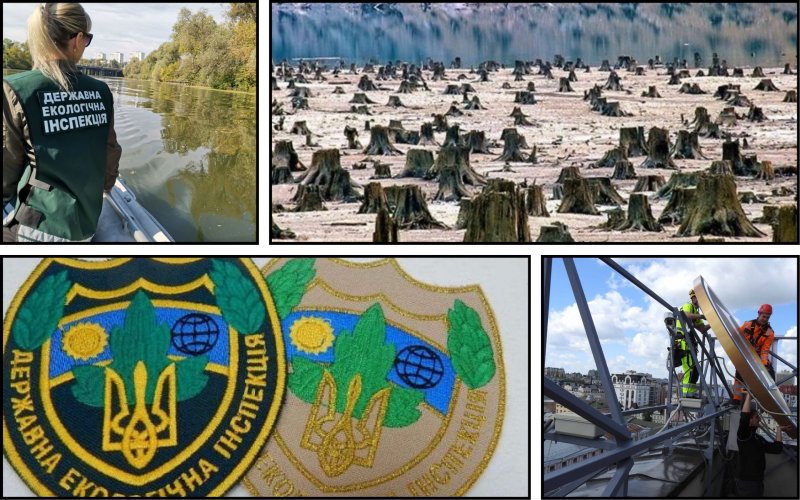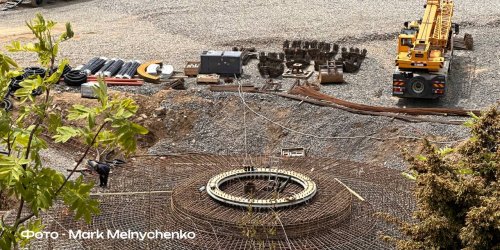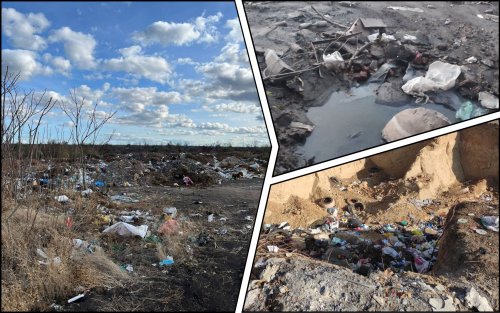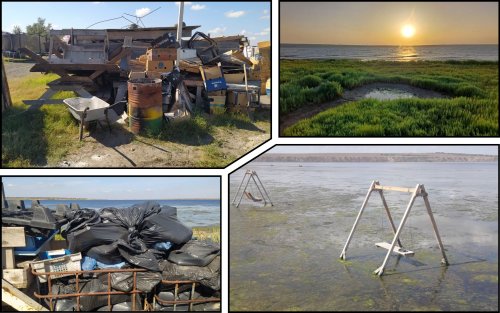The draft Law on State Environmental Control No. 3091 was adopted in the first reading more than two years ago. Then the authors promised that they would completely restart one of the most corrupt bodies in the environmental protection system – the State Environmental Inspection. But with each month, hopes for a real reform melted away. The other day, the eco-community became aware that for the time being the entire reform will be reduced only to the renaming of the SEI.
That's why EcoPolitic decided to recall how the reform of the State Inspectorate unfolded, and to find out why it is being "hidden" now.
How did the SEI reform begin?
For the first time, they talked about reforming the DEI back in 2014. After the Revolution of Dignity, the demand for the fight against corruption was particularly high. Already in 2016, the then Minister of Ecology and Natural Resources of Ukraine, Ostap Semerak, presented the Concept of reforming the environmental control system, which provided for the liquidation of the State Co-Inspection and the creation of a new body.
Specific documents were developed over several years, and already in November 2018, draft law No. 9336 "On the State Environmental Protection Service of Ukraine" was registered in the Verkhovna Rada.
The text of this document faced active criticism from the eco-community. In particular, experts of the "Environmental Protection" group of the Resuscitation Package of Reforms (RPR) made a statement in which they called on the Ministry of Natural Resources and the Government to review the reform, because it does not eliminate corruption risks, but only "changes the signboard" of the body.
In 2019, with the change of government, the project was withdrawn. Instead, by 2020, a new "Draft of the Law on State Environmental Control" (No. 3091) was created and registered, which was approved in the first reading in a year, and in two years it was simply "merged".
What was to be changed by draft law No. 3091
Among the positive points, draft law No. 3091 really increased the wages of inspectors. If earlier salaries started at UAH 5,500, then after the adoption of the draft law, they should receive at least three times more. In addition, the draft law expanded the powers of inspectors and strengthened the responsibility of entrepreneurs for violations. At the same time, instead of paying special attention to the responsibility of the employees themselves for wrongful actions, which should "balance" their powers, this responsibility was completely ignored.
The eco-community also took this document negatively. PAEU noted that the new draft law monopolizes control functions in the hands of one authority and grants it too broad rights to interfere in the activities of business entities.
With the beginning of a full-scale war, in May 2022, the author of the draft law, Oleksandr Marikovsky, suddenly declared that the document is now out of date. But he came up with a more radical proposal – to destroy the State Inspectorate completely:
"My colleagues and I are developing a project to eliminate this atavism and transfer some functions to the Ministry of Internal Affairs, and the DEI budget to the needs of the Armed Forces!" – he wrote on his Facebook page.
At the same time, People's Deputy Olena Kryvoruchkina called this initiative sabotage. After all, no matter how many claims there are to the DEI, its specialists during the war actually record the Russian eco-crimes under fire, hinder the work of "black" loggers and poachers.
After a few months, they decided to abandon "progressive" ideas and returned to work on No. 3091. On July 4, 2023, a meeting of the Working Group on the development of legislative initiatives regarding the implementation of EU norms and recommendations in the field of environmental control, environmental damage, and environmental liability was held in Ukrainian legislation. Based on the results of the meeting, it was decided, in particular, to prepare proposals and comments to the text of draft law No. 3091 for the second reading.
As Olha Boyko, coordinator of the Industrial Ecology and Sustainable Development Committee of the European Business Association, said in a comment to EcoPolitics, the new edition took into account some comments and suggestions of businesses, in particular, regarding the harmonization of the draft law with the norms of current legislation in the field of state supervision and control of economic activity. Namely:
- excluded the provision on the possibility of implementation of state environmental control measures by local self-government bodies;
- allowed the implementation of state environmental control measures for economic entities without leaving the country;
- provided for a three-level classification of business entities according to the degree of environmental risk;
- excluded the provision on the exemption of bodies implementing state environmental control from the need to pay a court fee, etc.
At the same time, the business has some reservations about some of its provisions of draft law No. 3091.
"The draft law proposes new forms of state environmental control measures, in particular, patrols, response to calls (notifications) and raid inspections. The development of separate procedures for each of them is not envisaged. Therefore, the question arises for businesses: can the territories covering land plots of private form property, or which are under lease, to be the objects of implementation of these measures? After all, any checks must be carried out according to the established procedure in order to avoid a legal vacuum and minimize the risks of violating the rights of landowners. Also, new requirements are established for the implementation of state environmental control measures for enterprises. In particular, such measures may not be included in comprehensive measures of state supervision. Businesses do not quite understand why such an opportunity is created, because it potentially leads to an increase in the frequency of inspections without proper grounds," says Olga Boyko.
In the new edition, the issue of the lack of responsibility of control bodies for illegal actions was again left unsolved. And the last important point – the draft law does not take into account the realities of martial law. The document was supposed to enter into force despite the fact that state supervision measures are currently suspended.
The other day, all the dilemmas and discussions regarding the content of draft law No. 3091 disappeared by themselves. After all, the president of PAEU Lyudmila Tsyganok, citing her sources, reported that the future reform of the draft law will be reduced to the order of the Ministry of Environment, which will only rename DEI into a new structure.
What is happening in the ecoinspection
Despite its important role in recording environmental crimes, the DEI did not change qualitatively during the war. And next to the news about work under fire, news about bribes and abuse of eco-inspectors appear in the tapes.
For example, in May 2023, law enforcement exposed the head of one of the departments of the State Environmental Inspection in the Sumy region. According to the investigation, the official demanded 20,000 hryvnias per month from the private entrepreneur "for not being prosecuted for possible violations of the legislation in the field of forestry and for not creating artificial obstacles in the form of appropriate inspections during his wood harvesting operations."
Why SEI is not really reformed
Unfortunately, the change of signs in the SEI demonstrates the failure of the reform at this stage. Why did this happen? Lyudmila Tsyganok convinced – now everything rests on the lack of money.
"A real reform will not require another paper decision, but real funds, real qualified personnel, real new rules. Already at the stage of liquidation of the SEI, significant additional expenses from the state budget are required for liquidation measures (implementation of legally established payments to employees upon dismissal, implementation of related procedures with the liquidation of the State Environmental Inspection, etc.). The Ministry of the Environment does not provide any valid justifications for the need to make the proposed changes, since, apart from changing the name of the Inspectorate, no changes in the essence of the body's activities are foreseen," she writes.
Does the Ministry of Environment really want to reform this system? Is it profitable for someone to lose such a well-established mechanism of pressure and earnings? Considering how successfully they are "hiding" already the second draft law on the reform of the SEI – the answer suggests itself.
The reform of state environmental control is one of the requirements of the European Commission for further European integration of our country. The main problem at the moment is that environmental control bodies in Ukraine and the EU have almost opposite functions. If in the EU, similar bodies should ensure that the norms of environmental protection legislation are followed, and violators should be held responsible. The function of the SEI is still limited mainly to the issuing of fines, and in the worst cases – to the "nightmare" of business. These two systems will not be able to integrate. Therefore, if we want to see success in the process of European integration, it is impossible to postpone the SEI reform in a distant box.





